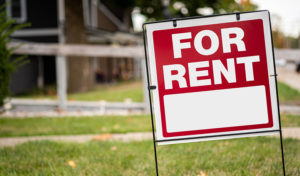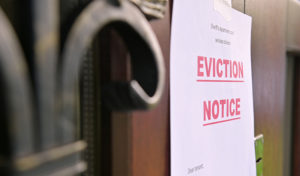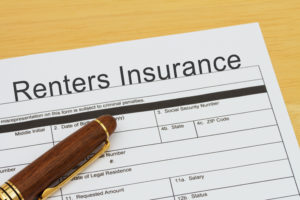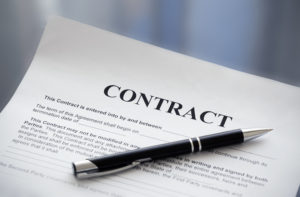Renter priorities have changed over the last few years. Landlords and property owners need to stay up-to-date with the changing trends to stay competitive. What are the top renter priorities nowadays? Here’s what you need to know.
Top Renter Priorities
The common priorities of renters included apartment features, community amenities, rental rates, and lease terms. However, as the new normal set in, renter priorities have started to shift. Here are the top renter priorities and tenant rental behaviors landlords should consider.
1. High-Speed Wi-Fi
Remote work has affected rental prices significantly in the new normal — and it’s no surprise why. That’s because renter priorities have shifted in the last few years. Now more than ever, tenants work from home several days a week. More and more people are not expecting their remote work setup to change.
Hence, tenants want high-speed Wi-Fi connectivity at home. Some may also prioritize Wi-Fi accessibility and speed in common areas. Landlords and property owners need to pay attention to this as they can help attract new renters.
 2. Shared Workspaces
2. Shared Workspaces
Apart from staying connected, people prefer to be more mobile than stationary. Hence, people want shared workspaces within apartments and communities. This is in line with the current trend of remote work being a big part of the new normal.
3. Electric Vehicle Accommodation
While not a lot of renters drive a fully electric vehicle, many are planning to purchase one the next time around. Many renters also consider the option and plan to purchase or lease an EV in the next two years.
As a result, landlords may need to provide more electric vehicle charging stations in the future. Landlords should also think about the quality and accessibility of their charging stations. They may also need to rework the logistics of their parking spaces to accommodate this new trend.
4. Prime City Centers
Even though remote work has changed renter priorities, tenants still want to live in prime city centers. This is because renters still want their workplaces to be in commutable distance. After all, not everyone works from home full-time. Many have hybrid setups wherein they work from home only a few days a week. This is why rental values have still increased in many big cities.
5. Online Tools
Renters have been embracing digital experiences more and more lately. Hence, it’s unsurprising that many rely more on online tools to find their next rental unit. Landlords and property owners should make sure to prioritize marketing their homes online to reach their target audience. They may also need to provide more information online to make the hunt more convenient.
In addition, landlords may even want to provide digital tours. Many renters say they may even consider signing a lease based only on digital information and virtual tours.
6. Outdoor Spaces
 While city centers are still sought, renters want more accessible outdoor spaces. This is because many remote workers still want a change of scenery and fresh air. They may be unable to do that while being cooped up in their rooms. However, if their immediate neighborhood can provide that, it’s a big plus.
While city centers are still sought, renters want more accessible outdoor spaces. This is because many remote workers still want a change of scenery and fresh air. They may be unable to do that while being cooped up in their rooms. However, if their immediate neighborhood can provide that, it’s a big plus.
Hence, landlords may want to provide more communal gardens and green areas. Property owners may consider providing bigger windows or more ventilation if the property is a skyscraper or tall building.
7. Aesthetics
The rise of social media has played a big role in the rental landscape. Moreover, more connected generations (millennials and Gen-Z) have grown older and are looking to rent properties. As a result, landlords need to pay attention to the aesthetics of their rental homes and communities. After all, renters nowadays want to share pictures of their every experience, including how they live at home.
8. Pet-Friendly Homes
Renters love their pets and don’t want to part with them at all costs. Hence, providing a pet-friendly rental unit may give landlords an edge over other homes. This may lead to more property damage, but landlords who allow pets in rental properties may gain more in the long run.
9. Price
Price will always be a big part of renter priorities. It’s one of the biggest reasons why renters leave and seek out a different rental home. Landlords will want to do their research on local rental rates and offer a competitive price to find tenants.
10. Neighborhood
The more people work from home, the more a good neighborhood matters to them. Renters want a safe city with decent noise levels and good neighbors. Landlords may need to factor this in to keep their current tenants and find new ones.
 11. Amenities
11. Amenities
An apartment or community’s amenities might be low on the priority list, but they’re still a factor people consider. That’s because renters still want access to good amenities, especially if they’re important to day-to-day living. For example, providing on-site laundry or a fitness studio might be helpful.
12. Large Living Space
Besides seeking lower rent, many renters also move out to look for a larger living space. Staying in a small home can be sustainable only for so long. People will eventually want to move somewhere with more room, especially if they want to settle down or start a family.
13. Good Management
Tenants may often butt heads with the property management company during disagreements. Even if an apartment’s amenities and features are superb, they might not be worth dealing with an awful management company. Thus, landlords should hire the right property manager and prioritize customer service.
Renter Priorities: An Important Consideration
Property owners and landlords need to consider these shifting trends in renter priorities. If they don’t, it could mean a lot of monetary loss down the road. Landlords who don’t stay competitive might not even be able to find tenants at all.
Staying on top of industry trends and making changes can be hard. Landlords struggling to do this alone may want to seek professional help. Look through our online directory today to find a trustworthy property management company!
RELATED ARTICLES:



 What Are the Property Management Company’s Responsibilities?
What Are the Property Management Company’s Responsibilities? Property management companies are still responsible for maintaining short-term or vacation rentals. However, maintaining these properties differs slightly from maintaining long-term rental properties.
Property management companies are still responsible for maintaining short-term or vacation rentals. However, maintaining these properties differs slightly from maintaining long-term rental properties. Cleaning is essential if you want to attract tenants. Showing prospects around a dirty place sends them a signal that the landlord doesn’t care enough to keep the property clean. It also encourages tenants to look after the property with the same level of care.
Cleaning is essential if you want to attract tenants. Showing prospects around a dirty place sends them a signal that the landlord doesn’t care enough to keep the property clean. It also encourages tenants to look after the property with the same level of care. 5. Property Showings
5. Property Showings 7. Vacancy
7. Vacancy Expiry. Tenants move all the time. This can be due to a number of reasons, such as a new job or to be closer to family. As such, once their lease expires, they will simply choose not to renew.
Expiry. Tenants move all the time. This can be due to a number of reasons, such as a new job or to be closer to family. As such, once their lease expires, they will simply choose not to renew.

 Showing the property to potential tenants
Showing the property to potential tenants Reputation is something you should also consider when hiring a property manager or company. To check this, make sure to look for reviews of the manager or company online. You can also ask the company or manager for references you can contact personally. Ask their references about the quality of services they deliver and how the manager responds to crises. It is also a good idea to inquire about the character and personality of the manager.
Reputation is something you should also consider when hiring a property manager or company. To check this, make sure to look for reviews of the manager or company online. You can also ask the company or manager for references you can contact personally. Ask their references about the quality of services they deliver and how the manager responds to crises. It is also a good idea to inquire about the character and personality of the manager. Since this is a problem for the building, it is the responsibility of the property manager to make sure the
Since this is a problem for the building, it is the responsibility of the property manager to make sure the  Cash flow is the difference between your rental income and property expenses. When investing in rental properties, you want to choose one that has a good or positive cash flow. That means that there is more money coming in than out.
Cash flow is the difference between your rental income and property expenses. When investing in rental properties, you want to choose one that has a good or positive cash flow. That means that there is more money coming in than out.
 Although listings usually show how much you expect to pay in rent, a lot of things could change in between posting the ad and signing the lease.
Although listings usually show how much you expect to pay in rent, a lot of things could change in between posting the ad and signing the lease. Another question to ask a landlord is whether or not renters insurance is required. This type of insurance covers the cost of your belongings in the event of theft or damages arising from peril.
Another question to ask a landlord is whether or not renters insurance is required. This type of insurance covers the cost of your belongings in the event of theft or damages arising from peril. Most rental property owners will want to renew a quality tenant’s lease. As long as you fit the bill, your landlord will welcome a lease renewal with open arms.
Most rental property owners will want to renew a quality tenant’s lease. As long as you fit the bill, your landlord will welcome a lease renewal with open arms. Environmental hazards are a common legal liability of property managers.
Environmental hazards are a common legal liability of property managers.  If a tenant
If a tenant  There is only so much that they can do to shield themselves from liability. That reality may be harsh, but it is nonetheless true. There are always new threats emerging in the real estate sector that may not have been anticipated in property management contracts.
There is only so much that they can do to shield themselves from liability. That reality may be harsh, but it is nonetheless true. There are always new threats emerging in the real estate sector that may not have been anticipated in property management contracts.


 Company
Company